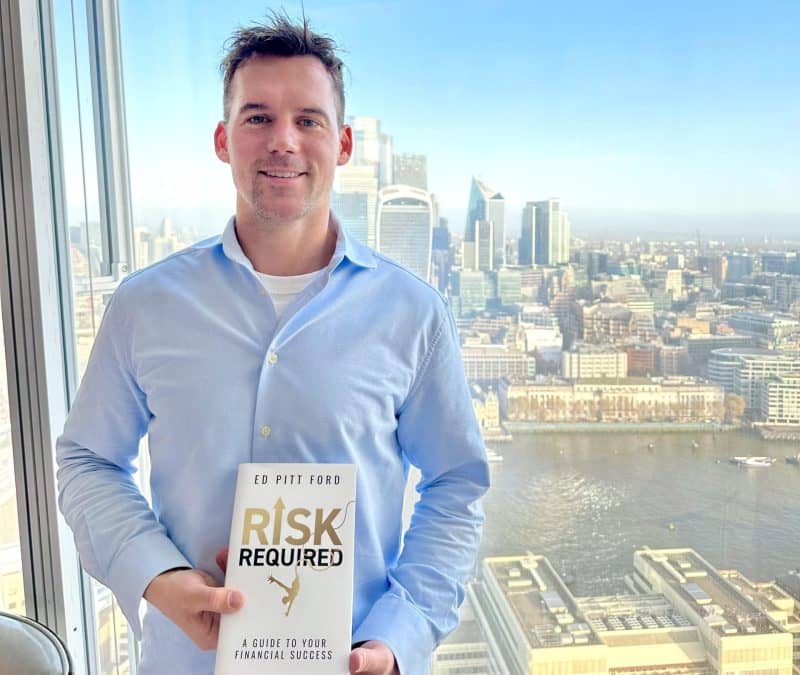Horoscope
Can magic mushrooms treat PTSD? London-bound clinical trial seeks to find out | CBC News

London is one of the latest Canadian cities to host pioneering research into the potential of psychedelic drugs to treat severe mental illness.
A Health Canada-approved clinical trial is seeking 20 local participants who have been diagnosed with post-traumatic stress disorder (PTSD) to undergo therapy assisted by psilocybin — the active ingredient in psychedelic mushrooms.
Sponsored by Apex Labs and conducted at sites owned by Centricity Research, the trial will tap into the expertise of local mental health professionals who will work with patients using Apex’s psychotherapy manual over the course of the trial.
One of those local professionals is Jared Dalton, a registered social worker and psychotherapist whose experience with psychedelic-assisted therapy began after he witnessed the distress his mother experienced at the end of her life.
“[Psychedelics] are really amazing for people that feel constricted around their emotions, who experience difficulty tolerating feelings of sadness, feelings of anxiety. It seems to create a space where they can they can feel those feelings without being overwhelmed by them,” said Dalton.
There’s a lack of good options available to help people experiencing significant stress during palliative care, he said.
In psychedelics, he sees a potential treatment that hasn’t been explored enough in research, and one that shows promise above and beyond just end-of-life care.
That’s why Dalton said he was on board when approached by Apex Labs, a pharmaceutical company that develops psilocybin-based drugs, to help treat participants with PTSD.
“I’m excited for what this means for the patients,” he said. “Free access to this type of support is huge, especially because of how costly it can be.”
More trials needed, Health Canada says
The main focus of the trial being to treat people with PTSD is borne partially from the expertise of Dr. Mark Johnston, a psychiatrist and Apex Labs’s chief medical officer.
He’s spent over 20 years treating PTSD, and said there’s a lack of treatment options that are purpose-built.
“We’ve taken most of them from anxiety or depression treatments because there’s a lot of overlap, and they kind of work,” he said. “There’s a lot of anecdotal evidence to support psilocybin being part of that solution.”
However, regulators need to see the results of clinical trials before the therapy can become more widely available, he said.
Psilocybin is prohibited in Canada by the Controlled Drugs and Substances Act and has been illegal since 1975. Health Canada says the drug shows promising results in clinical trials, but still says evidence is limited, as few trials have been completed.
Amid “increasing interest” in the drug’s potential, Health Canada posted a warning to its website, reiterating the drug is currently unapproved. That warning comes with the backdrop of illegal psilocybin dispensaries opening across Canada.
In the trial, which will include a total of 160 patients across four Canadian cities, Johnston hopes to prove that psilocybin is an effective medicine by giving participants either a placebo, or Apex’s psilocybin product.
“I suspect there will be a difference between the two groups, but the proof is in the pudding,” he said.
Alongside multiple doses of either placebo or psilocybin medication, trial participants will go through psychotherapy sessions before, during and after doses — an essential part of treatment, Johnston said.
That’s where Dalton comes in.

“Rewiring” the brain
According to him, psychedelics have a way of making human brains malleable, and allowing long-entrenched connections to be adjusted.
“The brain is efficient. It does the same thing the same way, over and over again. Psychedelics let us harness our ability to rewire our brains and make new connections,” he said, adding that the “neuroplasticity” psychedelics promote means psychotherapy can be more effective in treating severe problems.
“There’s a state of expansion, and you get to decide what pathways you want to create.”
Still, it’s hard to describe a psychedelic experience to someone who hasn’t experienced one, he said. While most people experience them as meaningful in some way, the way that manifests can be different.
“It could be spiritual, or transpersonal, or a feeling of rebirth,” he said.

Dalton said he’s confident the trial will be helpful not only to the mental health of participants, but the future of psychedelic medicine as well.
“I hope we can move to a place where between a patient, their doctor, and their therapist, they can make decisions about treatment that don’t have to go directly through Health Canada’s [lengthy approval process],” he said.
The trial is set to begin in the coming weeks, however screening for potential participants has already begun.
Typically, after clinical trials are complete and prove the drug’s benefits outweigh its risks, drug companies can apply to Health Canada for approval to market that drug.
LISTEN | Studying magic mushrooms to help treat PTSD
London Morning7:07Studying magic mushrooms to help treat PTSD
Twenty Londoners will take part in a trial to see if magic mushrooms can help treat post-traumatic stress disorder. Jared Dalton is the registered psychotherapist behind the study and he joined London Morning with more details about the breakthroughs on new trauma treatment.










